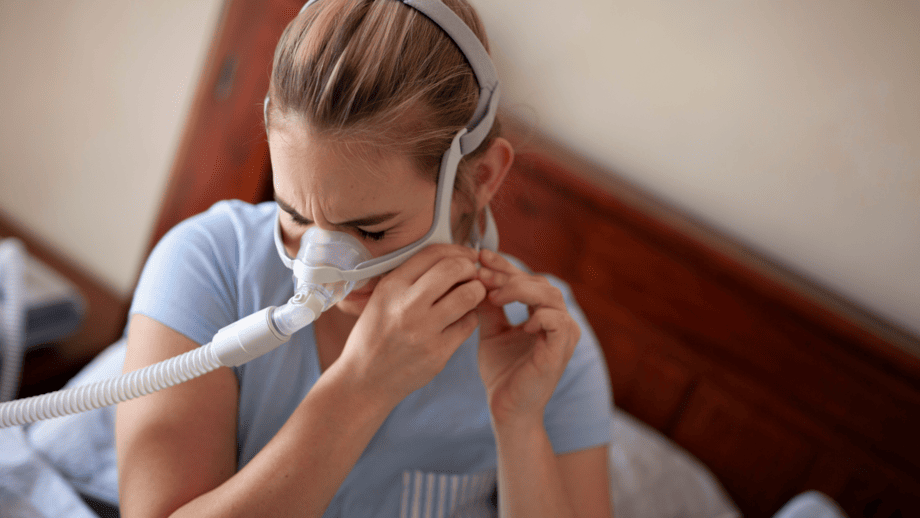Can Sleep Apnea Be a Precursor to Other Health Conditions?

Sleep apnea is a prevalent and potentially serious sleep disorder characterized by repeated interruptions in breathing during sleep.
This article explores the association between sleep apnea and various health conditions, including cardiovascular disease, hypertension, diabetes, obesity, mental health issues, and stroke.
By examining the existing literature on these topics, this study aims to elucidate the potential role of sleep apnea as a precursor to the development of these health conditions.
Understanding this relationship can help healthcare professionals better identify and manage patients at risk, potentially leading to improved health outcomes.
Key Takeaways
- Sleep apnea increases the risk of cardiovascular conditions such as hypertension, coronary artery disease, and stroke.
- Sleep apnea is strongly associated with metabolic disorders such as hypertension and diabetes.
- Sleep apnea is linked to insulin resistance, elevated blood sugar levels, and an increased risk of developing diabetes.
- Sleep apnea is associated with other health conditions such as obesity, depression, anxiety disorders, and cognitive impairment.
The Link Between Sleep Apnea and Cardiovascular Disease
The relationship between sleep apnea and cardiovascular disease has been extensively studied in recent research. Sleep apnea, a common sleep disorder characterized by repeated interruptions in breathing during sleep, has been found to be associated with an increased risk of cardiovascular conditions such as hypertension, coronary artery disease, and stroke.
One specific cardiovascular complication related to sleep apnea is arrhythmia, or irregular heart rhythm. Studies have shown that individuals with sleep apnea are more likely to experience various arrhythmias, including atrial fibrillation.
Additionally, sleep apnea has also been linked to cognitive decline. Chronic intermittent hypoxia, a key characteristic of sleep apnea, can lead to oxidative stress and inflammation, which may contribute to cognitive impairment and the development of neurodegenerative diseases such as Alzheimer’s disease.
Understanding the relationship between sleep apnea and these health conditions is crucial for identifying potential prevention and treatment strategies.
Sleep Apnea and Hypertension: A Dangerous Connection
Hypertension has been found to have a strong association with sleep apnea. Sleep apnea, a common sleep disorder characterized by pauses in breathing during sleep, has been linked to various health conditions. The connection between sleep apnea and hypertension is particularly concerning, as both conditions increase the risk of cardiovascular events.
Additionally, sleep apnea can contribute to higher stress levels, further exacerbating hypertension. Moreover, research suggests that sleep apnea may have detrimental effects on cognitive function, potentially leading to memory impairment and decreased attention span.
Understanding the relationship between sleep apnea and other health conditions is crucial for effective diagnosis and treatment. Addressing sleep apnea not only improves sleep quality but also reduces the risk of developing or worsening hypertension and cognitive impairments.
Sleep Apnea and Diabetes: Uncovering the Hidden Relationship
This discussion aims to explore the relationship between sleep apnea and diabetes, focusing on three key points:
- The impact of sleep apnea on insulin levels: Research suggests that sleep apnea can affect the body’s insulin sensitivity, potentially leading to insulin resistance and the development of diabetes.
- Risk factors for diabetes development: Furthermore, certain risk factors, such as obesity and family history, increase the likelihood of developing both sleep apnea and diabetes.
- The potential of treating sleep apnea as a preventive measure against diabetes: Addressing and treating sleep apnea may be crucial in reducing the risk of diabetes and its complications.
Sleep Apnea and Insulin
Sleep apnea has been linked to insulin resistance and impaired glucose metabolism. This association between sleep apnea and insulin resistance has important implications for the development of diabetes and other metabolic disorders.
Some of the key points to consider include:
- Sleep apnea and insulin resistance: Studies have shown that individuals with sleep apnea are more likely to have insulin resistance, a condition in which the body’s cells are less responsive to the effects of insulin. This can lead to elevated blood sugar levels and an increased risk of developing diabetes.
- Impact on blood sugar control: Sleep apnea can disrupt the normal regulation of blood sugar levels, leading to fluctuations in glucose levels throughout the day.
- Inflammation: Sleep apnea is associated with chronic low-grade inflammation, which can further contribute to insulin resistance and impaired glucose metabolism.
- Obesity: Both sleep apnea and insulin resistance are more common in individuals who are overweight or obese. Obesity is a major risk factor for both conditions.
- Treatment implications: Treating sleep apnea, such as with continuous positive airway pressure (CPAP), may improve insulin sensitivity and blood sugar control in individuals with coexisting insulin resistance or diabetes.
Overall, the relationship between sleep apnea and insulin resistance highlights the importance of recognizing and addressing sleep apnea as a potential precursor to other metabolic disorders.
Diabetes Risk Factors
Obesity, chronic inflammation, and insulin resistance are significant risk factors for the development of diabetes.
Sleep apnea, a common sleep disorder characterized by intermittent pauses in breathing during sleep, has been found to be associated with an increased risk of developing diabetes.
Research suggests that sleep apnea may contribute to the development of diabetes through various mechanisms, including the promotion of obesity, chronic inflammation, and insulin resistance.
Addressing sleep apnea through effective treatments, such as continuous positive airway pressure (CPAP) therapy, has been shown to improve glycemic control and reduce the risk of developing diabetes.
Therefore, incorporating sleep apnea treatments into diabetes prevention strategies may be beneficial in reducing the burden of this chronic condition.
Treating Sleep Apnea
Addressing the treatment of sleep apnea is essential in managing the risk factors associated with the development of diabetes. Sleep apnea is a common sleep disorder characterized by pauses in breathing during sleep, leading to fragmented sleep and decreased oxygen levels in the body. Treating sleep apnea can help improve overall health and reduce the risk of developing other health conditions such as diabetes.
Alternative therapies for treating sleep apnea include:
- Continuous positive airway pressure (CPAP) therapy: This involves wearing a mask over the nose and/or mouth during sleep, which delivers a constant flow of air to keep the airways open.
- Oral appliances: These devices are designed to reposition the jaw and tongue to help keep the airway open during sleep.
- Lifestyle modifications: Making changes such as losing weight, quitting smoking, and avoiding alcohol and sedatives can help improve sleep apnea symptoms.
- Positional therapy: Sleeping in certain positions, such as on your side, can help prevent airway obstruction.
- Surgery: In some cases, surgical procedures may be recommended to correct anatomical abnormalities that contribute to sleep apnea.
These alternative therapies aim to alleviate the symptoms of sleep apnea and improve sleep quality, ultimately reducing the risk of developing diabetes and other associated health conditions.
Sleep Apnea and Obesity: A Vicious Cycle
This discussion focuses on the relationship between sleep apnea and weight, as well as the health risks associated with sleep apnea.
Research has shown that there is a significant link between obesity and sleep apnea, with excess weight being a major risk factor for the development and severity of the condition.
Moreover, sleep apnea itself poses various health risks, including cardiovascular problems, daytime sleepiness, and cognitive impairment.
Sleep Apnea and Weight
Sleep apnea has been shown to have a significant association with weight gain and obesity. Individuals with sleep apnea often experience disruptions in their sleep patterns due to repeated pauses in breathing during sleep. This can lead to various physiological and metabolic changes in the body. Here are some key points to consider regarding the relationship between sleep apnea and weight:
- Sleep apnea can contribute to weight gain by affecting metabolism and hormonal regulation.
- Disrupted sleep patterns associated with sleep apnea can lead to increased appetite and cravings for high-calorie foods.
- Obesity can also worsen sleep apnea symptoms by further compromising respiratory function.
- Effective treatment of sleep apnea, such as continuous positive airway pressure (CPAP) therapy, can lead to weight loss in some individuals.
- Weight loss, through lifestyle modifications or bariatric surgery, can improve sleep apnea symptoms and severity.
Understanding the interplay between sleep apnea and weight is crucial for developing effective interventions and improving overall health outcomes.
Health Risks of Apnea
Previous research has shown a link between sleep apnea and weight gain. However, the implications of sleep apnea extend beyond weight management.
Sleep apnea has been associated with several health risks and can serve as a precursor to other serious conditions. Individuals with sleep apnea are at an increased risk of developing cardiovascular diseases such as hypertension, stroke, and heart failure. Additionally, untreated sleep apnea can lead to cognitive impairment, including memory loss and difficulties in concentration. It has also been linked to metabolic disorders such as diabetes and obesity.
To mitigate these health risks, several treatment options are available, including continuous positive airway pressure (CPAP) therapy, oral appliances, and lifestyle modifications. Early diagnosis and appropriate treatment of sleep apnea are therefore crucial in reducing the potential health complications associated with this condition.
Sleep Apnea and Mental Health: Exploring the Psychological Impact
The psychological impact of sleep apnea on individuals is being explored, particularly in relation to mental health conditions. Sleep apnea, a disorder characterized by interrupted breathing during sleep, has been found to have various effects on mental well-being.
- Sleep apnea has been associated with an increased risk of developing depression and anxiety disorders.
- The disrupted sleep patterns caused by sleep apnea can lead to cognitive impairments, including difficulties with memory and attention.
- Individuals with sleep apnea may experience decreased quality of life and increased daytime sleepiness, which can further contribute to mental health issues.
- Exploring therapy options for sleep apnea, such as continuous positive airway pressure (CPAP) machines, may alleviate some of the psychological symptoms.
- Treatment of sleep apnea has been shown to improve cognitive function and mental well-being in individuals with the condition.
Further research is needed to fully understand the complex relationship between sleep apnea and mental health, as well as to develop targeted interventions to address the psychological impact of this sleep disorder.
Sleep Apnea and Stroke: Understanding the Connection
Further investigation is necessary to comprehensively comprehend the relationship between sleep apnea and stroke and establish a thorough understanding of the underlying mechanisms.
Sleep apnea, a disorder characterized by repeated pauses in breathing during sleep, has been associated with various health conditions, including stroke. Studies have shown that sleep apnea can have detrimental effects on brain function, leading to an increased risk of stroke.
The exact mechanisms underlying this relationship are still not fully understood. However, it is believed that the intermittent hypoxia and sleep fragmentation experienced by individuals with sleep apnea may contribute to vascular damage and inflammation, which can ultimately lead to stroke.
Additionally, sleep apnea has also been linked to cognitive decline, further highlighting the importance of investigating the connection between sleep apnea and stroke to potentially prevent or manage these conditions.
Frequently Asked Questions
What Are the Symptoms of Sleep Apnea?
Sleep apnea is a sleep disorder characterized by intermittent cessation of breathing during sleep. Symptoms include loud snoring, excessive daytime sleepiness, morning headache, and difficulty concentrating. Treatment options include lifestyle changes, continuous positive airway pressure (CPAP), and surgery. Sleep apnea can be caused by various factors such as obesity, smoking, and alcohol consumption.
How Is Sleep Apnea Diagnosed?
Sleep apnea diagnosis typically involves a sleep study, which can be conducted in a sleep laboratory or at home. Various testing methods, such as polysomnography and home sleep apnea testing, are used to assess sleep quality and identify the presence and severity of sleep apnea.
What Are the Treatment Options for Sleep Apnea?
Treatment options for sleep apnea include Continuous Positive Airway Pressure (CPAP) therapy, which involves using a mask to deliver pressurized air, and Oral appliance therapy, which involves wearing a device that helps keep the airway open during sleep.
Can Sleep Apnea Be Cured?
Sleep apnea management involves various treatment options, such as continuous positive airway pressure (CPAP) therapy, oral appliances, and surgery. Alternative therapies, including positional therapy, weight loss, and lifestyle modifications, may also be considered.
Are There Any Risk Factors for Developing Sleep Apnea?
Various risk factors and causes contribute to the development of sleep apnea. Obesity, smoking, alcohol consumption, old age, and genetic predisposition are among the risk factors associated with the onset of this condition.









